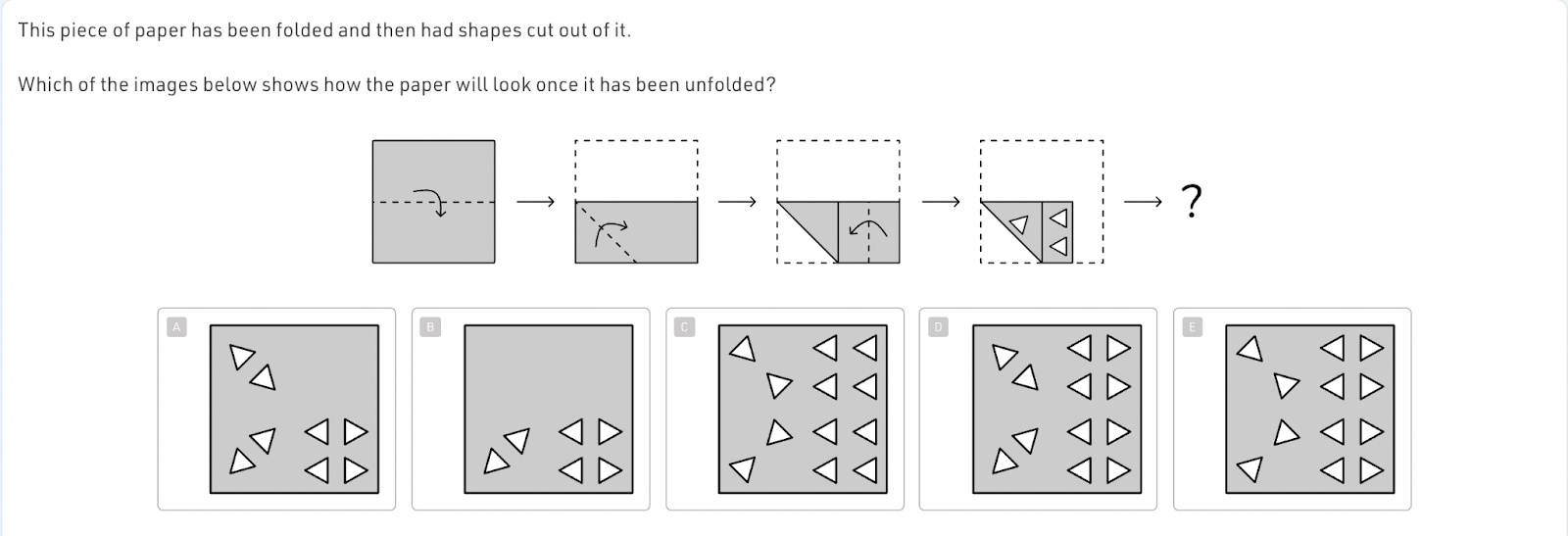What are the 5 most common areas of difficulty in 11+ exams?
Below are five of the most challenging sub-topics your child could face on their 11+ exam.
These areas are known for costing students marks. For each one, we have included our top recommendations on how you can use Atom Home to develop these skills.
1. Algebra
Algebra first appears in the National Curriculum under the Year 6 programme of study.
Since Grammar School entrance exams take place in September of Year 6, most students won’t have covered it in school before their test.
To get ahead, we recommend introducing algebra from mid-Year 5 using extra practices on Atom. This will build confidence and ensure your child is well-prepared for the 11+ while also giving them a strong foundation for secondary school maths.
Top Tip:
"Make the most of the Lesson Library, where your child can watch recordings on Algebra and Equations. Seeing a teacher break down problems step by step can be a game-changer for tricky topics, helping them pick up valuable exam techniques!"
2. Following Folds
For many, non-verbal reasoning is the most challenging 11+ subject.
Following folds questions, such as the one below, need students to visualise and keep track of many shapes in their head at once.

Top Tip:
“When revising one of the best things to do is get an A4 page and a pair of scissors and follow the instructions to make the pattern that is being described. This helps students create a mental representation of how the shapes move and interact with each other for the real exam. Once they understand the method repetition will be key in building confidence.”
3. Comprehension - Inference
Being a confident reader is essential for any entrance exam.
Encouraging your child to read a variety of challenging and engaging texts will strengthen their comprehension skills while also improving spelling, vocabulary, and punctuation.
When it comes to comprehension, inference is often the trickiest skill for students. It requires them to read between the lines and draw conclusions based on evidence from the text, a key skill for success in the 11+.
Top Tip:
“One fun way to build inference skills is to play ‘prediction’ and ‘storytelling’ games.
At the end of a chapter get your child to write down a prediction of what is going to happen next. Another version of this game is to write an alternative ending to a story!
Your child can also watch the recordings of previous comprehension live lessons in the lesson library."

4. Worded Problems
Maths worded problems are infamous for costing students marks in 11+ exams.
Often, the last sentence alters what you think the question is asking, so it is important to read the full question carefully.
Alongside this confidence, changing worded questions into numerical sums will help break them down.
Top Tip:
"We recommend setting regular extra practices in 'Worded Problems' under the subtopic number > operations in maths alongside Time, Speed and Money under measurement > weights and measures. These questions are frequently displayed as worded problems.
Once your child has completed each activity, go through the transcript together, reflecting on any corrections and what they would do next time.
If the child spots themselves that they didn’t read the question properly, they are far less likely to make the same mistake in the real exams!"

5. Nets and Cubes
Within non-verbal reasoning, nets and cubes are a common area where many students struggle.
Top Tip:
"We recommend watching our 11+ Live Lesson recordings on Nets and Cubes and other challenging NVR topics.
These lessons help children build spatial awareness, understand how 2D shapes fold into 3D forms, and boost their confidence when approaching these types of questions."

Accurate at time of publishing.